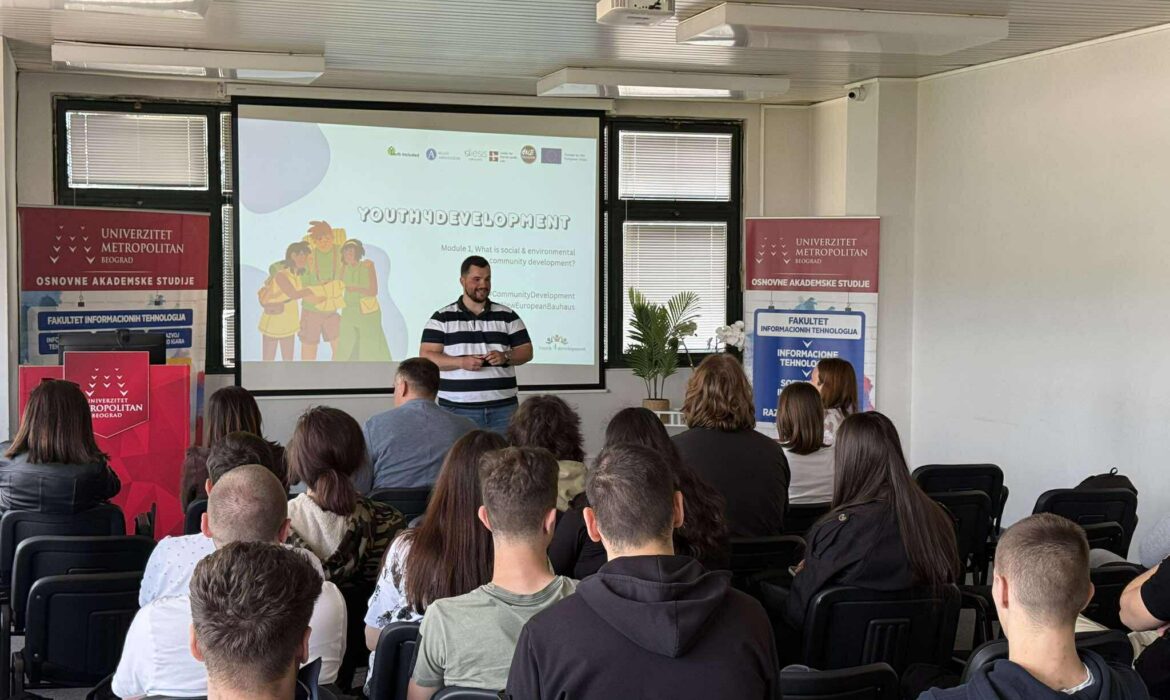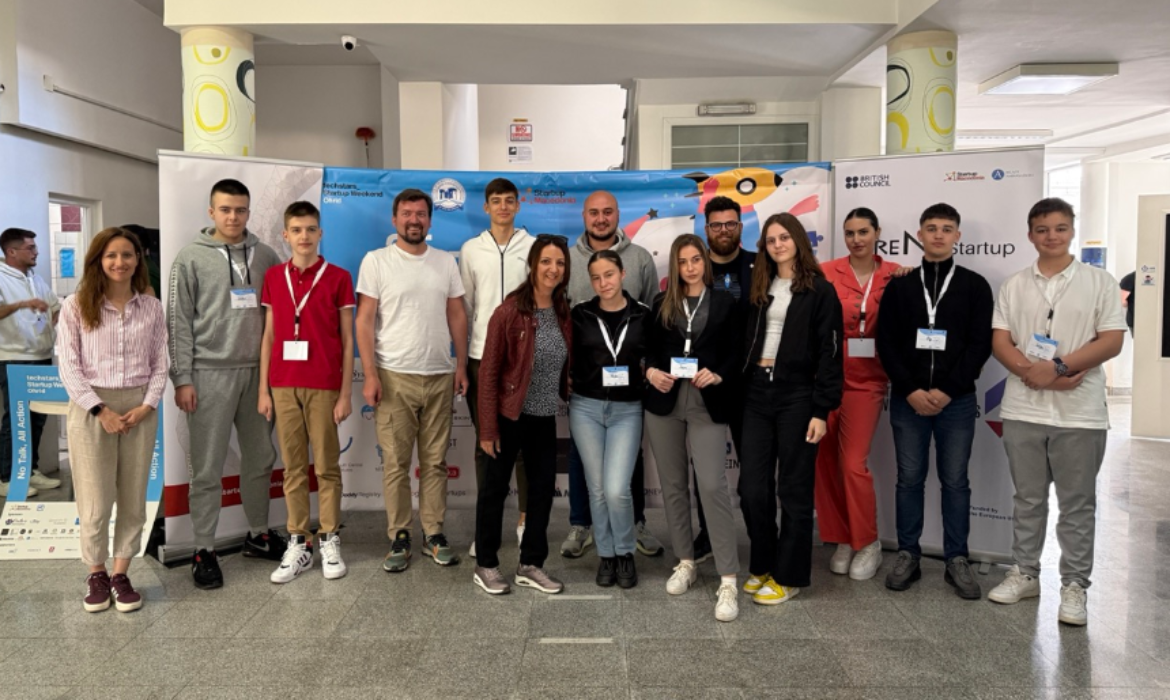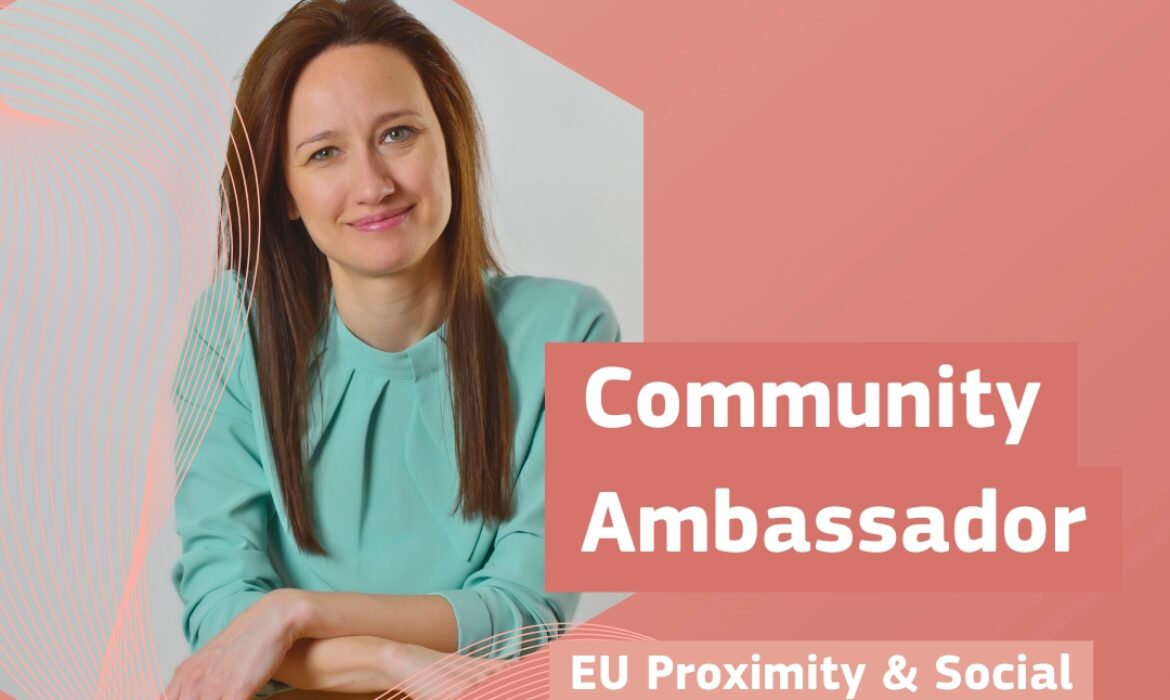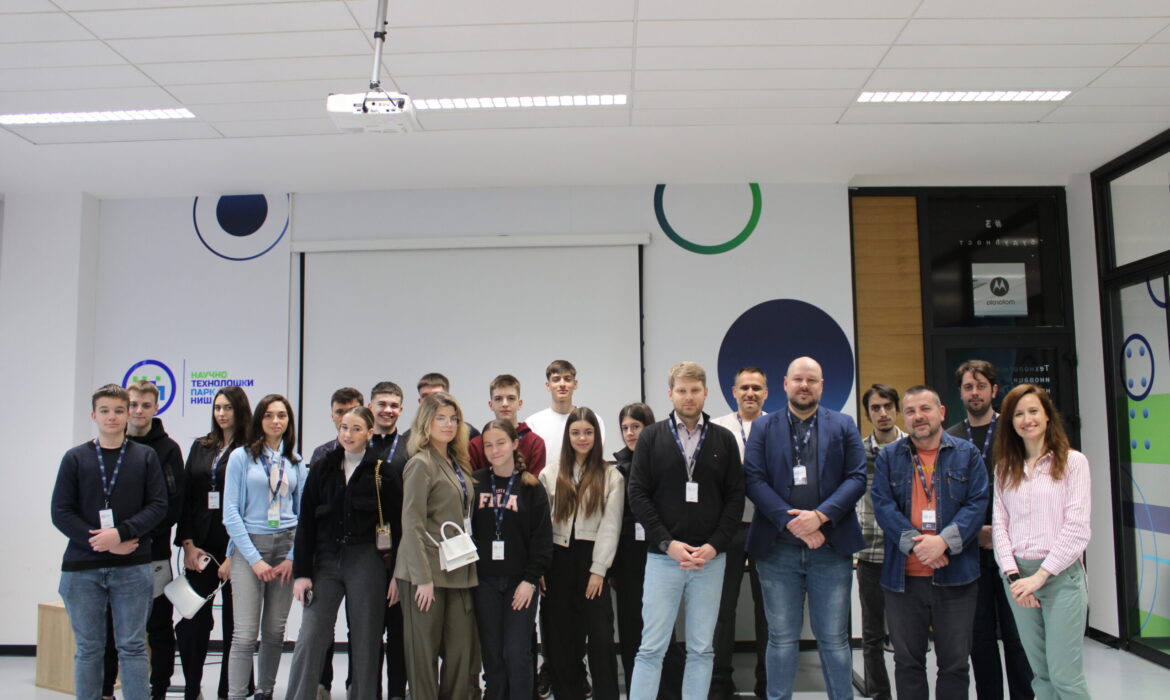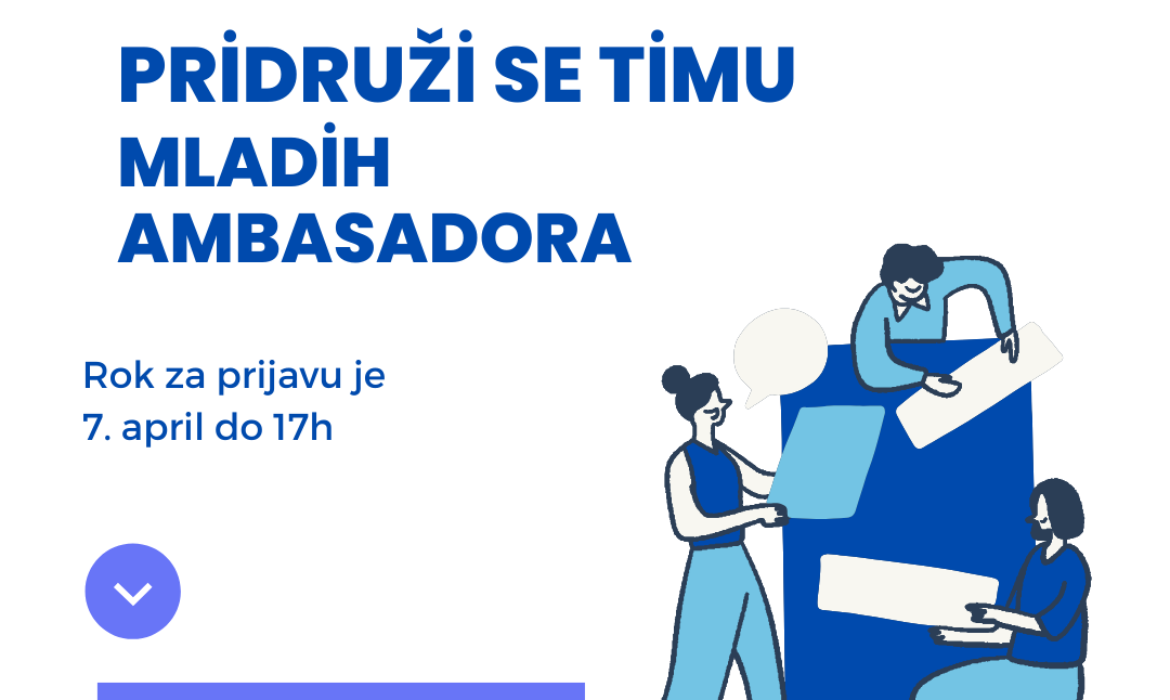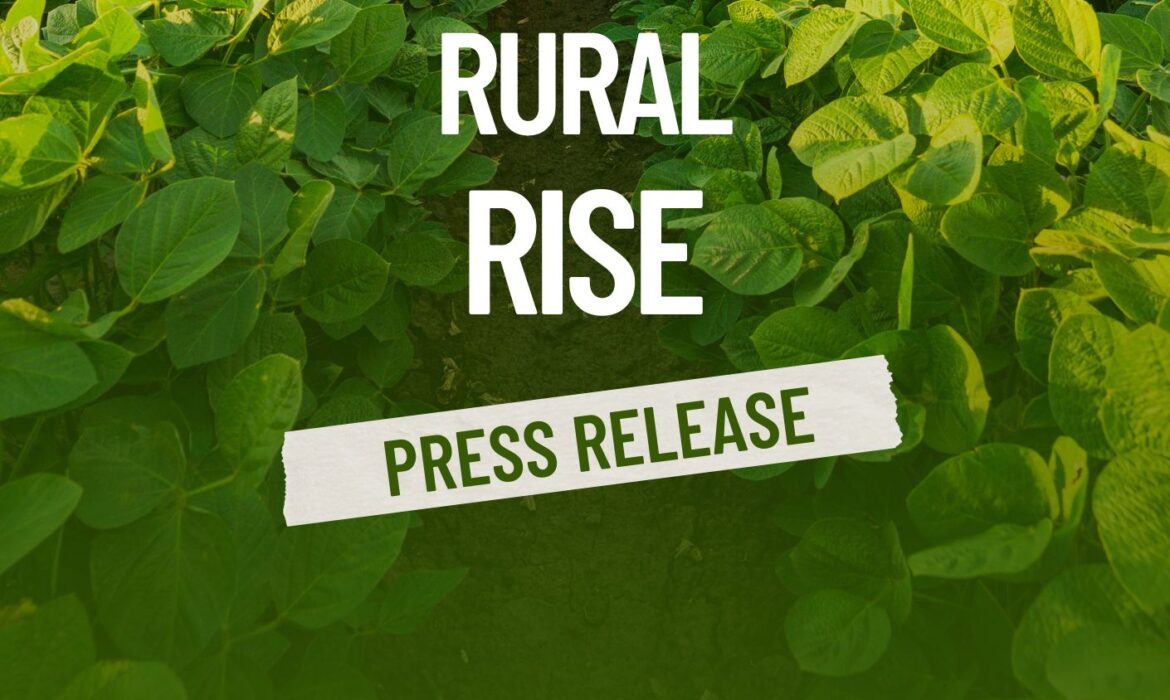<strong>Empowering Youth in Local Communities in Niš – <em>Youth4Development</em></strong>
As part of the Youth4Development project, two intensive trainings were organized with the aim of empowering young people to actively engage in the development of their communities through civic participation, advocacy campaigns, and direct cooperation with local institutions.
Youth for Social and Environmental Community Development
At the end of May, we organized a one-day training at the Metropolitan University, focusing on strengthening young people’s capacities to initiate actions aimed at social and environmental development at the community level. The training was structured into four thematic modules and delivered through interactive methods such as group work, simulations, debates, and experiential learning. The sessions were led by experts and facilitators with extensive experience in youth activism and community development.
The training brought together university students interested in deepening their understanding of social and environmental challenges, as well as academic assistants and staff who contributed to discussions and helped bridge the gap between theory and practice.
Participants gained knowledge about the principles of community development, the functioning of local institutions, and ways to launch civic initiatives. They also developed skills in critical thinking, campaign design, and leading youth-led actions.
Youth Leaders and Local Advocacy Campaigns
In early June, a second training was held to empower young people to design and implement local advocacy campaigns, fostering leadership and civic innovation. Through thematic workshops and hands-on activities, participants learned the fundamentals of local advocacy and community organizing, how to identify issues and map stakeholders, and how to build effective communication strategies, including public speaking and digital media engagement.
High school students gathered at the Think Innovative Hub in Niš and developed three local advocacy campaigns on the following important topics: environmental protection and recycling; the issue of stray dogs in Niš; the improvement of public transportation and the need for a smart bus app.
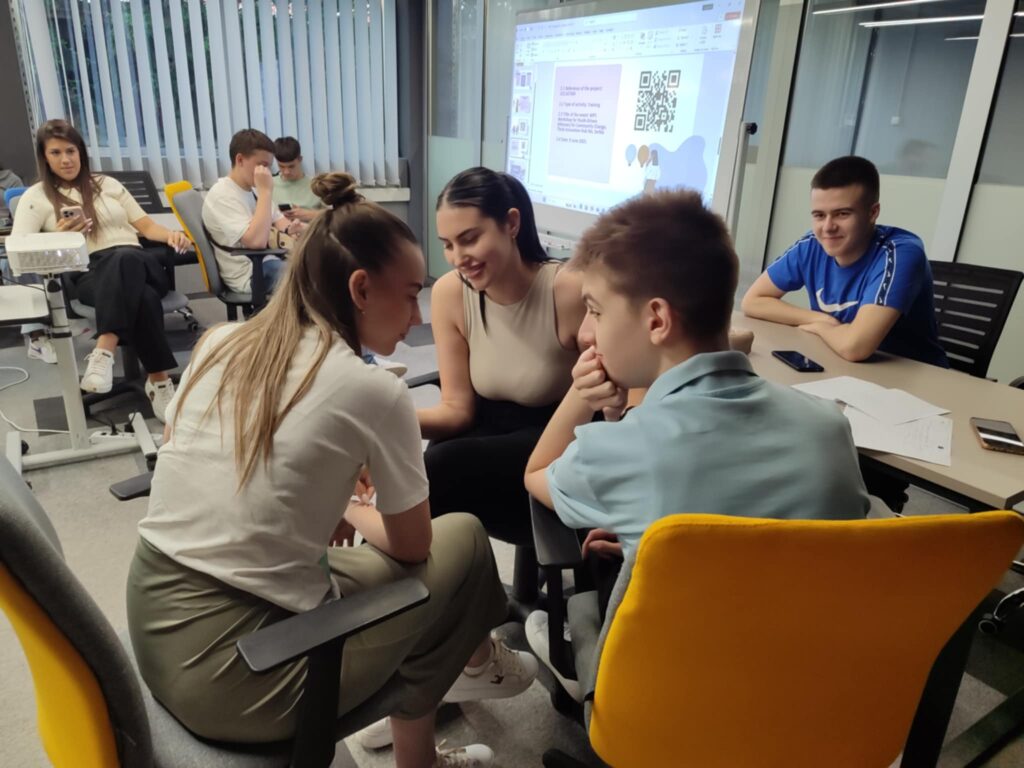
These activities were implemented within the framework of the Youth4Development – Youth for social and environmental development in Europe project. The Youth4Development project brings together five partners from different European countries, aiming to promote sustainable development and empower youth. The project is led by the organization CLNR from Romania, in partnership with Diesis Network, Youth Included, Hub Nicosia, and our organization, Young Ambassadors.
This international project will run until February 2026, with partners working together to empower young people, support social entrepreneurship, and strengthen cross-sector cooperation. Through knowledge exchange and sharing of good practices, the project will contribute to the social and economic progress of local communities and help create an enabling environment for young people to participate in processes that affect them.
10 Young People from Serbia Joined Startup Weekend Ohrid as Part of the KreNI Startup Project
Startup Weekend Ohrid recently wrapped up its second edition, bringing together young innovators
from across the region. Organized by Startup Macedonia with the support of the Startup Weekend
Skopje team and a strong network of founders and startup enthusiasts, the event offered an
inspiring platform for networking, team-building, and startup development.
Over the course of three high-energy days, participants pitched ideas, formed teams, joined
workshops, and worked with mentors to transform concepts into prototypes. The final day featured
pitch presentations where teams shared their startup visions and made their mark on the
entrepreneurial scene.
The event was part of the KreNI Startup project, a regional initiative by Startup Macedonia (North Macedonia) and
Young Ambassadors (Serbia), supported by the British Council and funded by the European Union
through the Culture and Creativity for the Western Balkans (CC4WBs) project. The CC4WBs
project aims to foster dialogue in the Western Balkans by enhancing the cultural and creative sectors
for increased socio-economic impact.
This year’s exchange saw 10 participants from North Macedonia attend the 10th KreNI Conference
in Niš in December 2024, while 10 participants from Serbia traveled to Ohrid to take part in Startup
Weekend. The project tackles key regional challenges such as high youth unemployment and
underdeveloped creative industries by promoting youth empowerment, regional collaboration, and
entrepreneurial growth.
Through benchmarking workshops, study visits, joint event management, and youth mentorship,
KreNI Startup aims to strengthen creative and entrepreneurial skills across borders. A digital
publication will capture the project’s insights and best practices, fostering continued learning and
collaboration.
KreNI Startup is more than a partnership—it’s a shared vision for a connected and thriving
entrepreneurial ecosystem in the Western Balkans.
EU Proximity and Social Economy Platform: our new opportunity!
Mladi ambasadori have become part of the EU Proximity and Social Economy Platform, and our president, Snežana Andrić, has been appointed as a Community Ambassador of this platform.
This platform provides a new space for those working on strengthening local economies, enhancing social innovations, and contributing to Europe’s green and digital transition. It serves as a digital hub for leaders in social economy and sustainable, community-focused business. The platform is built on the Transition Pathway, co-created by the European Commission and key stakeholders in the proximity and social economy sectors.
Snežana Andrić is the EU Proximity and Social Economy Platform Ambassador – a role that offers a unique opportunity to expand networks and establish connections with individuals and organizations engaged in similar programs. During networking events, she will showcase successful initiatives and projects aligned with the platform’s objectives. There is great potential in leveraging best practices from the platform, integrating them, and promoting them within ongoing projects and programs. This not only strengthens our own initiatives but also demonstrates how joining the platform can lead to valuable cross-sectoral learning and collaboration.
The goal of this initiative is to create a fully dedicated digital platform for individuals and organizations active in proximity and social economy, committed to advancing environmental sustainability, community prosperity, and resilience, in line with the Transition Pathway.
Young Ambassadors Attend a Lecture and Workshop by Israeli Innovation Expert Jaroslav Efimov
On March 26, participants of the 11th generation of Young Ambassadors had the opportunity to attend a lecture and workshop led by Israeli innovation expert Jaroslav Efimov.
They learned more about the Israeli innovation system, global climate technologies, and had the chance to ask questions about how to best develop their startup or present a business idea.
We would like to thank the Science and Technology Park Niš, City and Me, and the Embassy of Israel in Serbia for recognizing the importance of connecting young people with topics in the fields of innovation, entrepreneurship, and new technologies.
Jaroslav Efimov is the Head of Climate Programs at PLANETech. PLANETech is a nonprofit innovation community for climate change technologies—a joint venture of the Israeli Innovation Institute and Consensus Business Group. It brings together the Israeli and global climate tech ecosystem, addressing one of the most pressing global challenges—climate change. Jaroslav has over 15 years of experience in various international industrial projects.
His current work at PLANETech bridges climate tech investments and entrepreneurship, enabling the development and scaling of innovations in the global market. This left a motivating impression on our participants and contributed to the success of the lecture with examples from Jaroslav’s extensive professional experience.
Join us: We are looking for a Project Assistant!
We are looking for a project assistant who will support the implementation of projects and contribute to the visibility of our organization’s work in the community.
If you are at the beginning of your career and enjoy working on creative tasks, we believe this is a great opportunity for you to join our team!
What would your responsibilities be?
- Participating in the implementation of project activities, event organization, administrative tasks, and other duties in agreement with your mentor;
- Publishing news on the website as well as posts and stories on social media (LinkedIn, Instagram, Facebook) and communicating with followers through messages and comments;
- Creating content for social media and participating in content planning;
- Writing blog posts and news articles related to the activities of Young Ambassadors, gathering content related to media appearances, analyzing them, and preparing press clippings.
What do we offer?
- Mentorship support and opportunities for personal and professional development;
- Know-how in project management;
- The chance to work on long-term international projects and conferences;
- Opportunities to travel and collaborate on projects with peers from across Europe;
- Networking with numerous successful individuals, organizations, and companies;
- Engagement in a youth organization with over 10 years of experience in creating solutions in entrepreneurship, creative industries, and culture, as well as supporting young people in becoming active members of society;
- Remote work and flexible engagement in agreement with your mentor.
Application Requirements via the National Employment Service Internship Program:
- You are under 30 years old;
- You have unemployed status and have been registered with the National Employment Service for at least 3 months;
- You have a minimum Level 6 qualification (higher education);
- You have no work experience in your field or have less than 6 months of experience.
📩 Send your CV and a motivation letter (up to 300 words) to office@ambasador.rs.
🗓️ Application deadline: April 7, 2025, by 5:00 PM.
If you are shortlisted, we will contact you to proceed with the selection process.
For any questions, feel free to reach out to us at office@ambasador.rs.
Rural Rise #pressrelease #1
Rural Rise has kicked-off!
We are thrilled to announce that Rural Rise has been selected as one of the three winning projects in the SMP-COSME-2023-RESILIENCE call, achieving an exceptional score of 93 out of 100. This ambitious initiative is set to strengthen resilience and foster the social economy in rural communities across Europe, paving the way for sustainable development and inclusive growth.
Purposes of the project
Rural Rise aims to empower rural communities through a multifaceted approach. At its core, the project seeks to boost rural social entrepreneurship by providing sustainable training and strengthening local economies. With a particular focus on youth and women, it aims to create green jobs, enhance skills development, and promote lifelong learning opportunities.
In addition, the project emphasizes policy activation and transnational cooperation. By fostering collaboration between local authorities and social economy organizations, Rural Rise adopts the New European Bauhaus approach to envision and implement social and economic regeneration in rural areas. This collaborative framework ensures that local needs are met while aligning with broader European goals.
Furthermore, Rural Rise encourages local action plans and promotes the circular economy in rural regions. Through a comprehensive dissemination strategy, the project will share its findings and best practices at both national and European levels, working in close partnership with various European actors to maximize its impact.
Upcoming activities
The Rural Rise partnership has already made significant progress. Over the past few months, Diesis Network led a comprehensive desk research effort to map opportunities for green job creation, lifelong learning, and upskilling for young people in rural areas. This research highlights 12 inspiring best practices, and the full report will soon be released. Stay tuned for updates on the official project website!
Looking ahead, the project will host a series of Capacity Building Labs across Europe. The first of these events will take place in Miglionico, Italy, on May 21 and 22, 2025. A call for participants will be launched in March 2025, inviting 8 participants each from Italy, Serbia, and Spain. This event will be a key opportunity for knowledge exchange and collaboration.
Later in October 2025 and throughout 2026, three additional Capacity Building Labs will be held in Palilula, Niš (Serbia), Valdefuentes (Spain), and Brussels (Belgium). These events will further strengthen the project’s transnational cooperation and ensure the dissemination of its outcomes. Be sure to follow the official project website to stay informed about these exciting opportunities.
Link to apply: bit.ly/ruralrise1
The project’s partners
Rural Rise is led by a dynamic European consortium, bringing together expertise from across the continent. The partnership includes Materahub and Miglionico from Italy, Diesis Network from Belgium, Young Ambassadors and Palilula (Niš) from Serbia, and Wazo Coop and Valdefuentes from Spain. Together, these organizations are committed to driving social and economic transformation in rural communities, ensuring that the benefits of the project reach those who need them most.
Through its innovative approach and collaborative spirit, Rural Rise is poised to make a lasting impact on rural resilience and social entrepreneurship across Europe.
